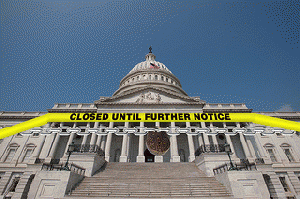This article is in response to "11 Questions You Should Ask Libertarians to See if They are Hypocrites" by Richard Eskow published in Oped News on 9/12/2013,
I started out writing a comment to the article but realized that any explanation that was aimed at communication rather than venting was going to be much too long for a comment. I saw too many comments I considered to be too snippy on both sides. But before I get to the questions themselves let me explain what I am NOT going to do. Many of the questions were prefaced by material which included unsubstantiated accusations, ad hominum attacks and attempts to imply guilt by association. I am choosing to ignore all that and take the questions at face value referring only to the background commentary when necessary to provide context for the answers. You should definitely read that article before this one. I have spent the time to do this because I believe that it is a waste of time for progressives and libertarians to be throwing stones at each other when there are so many important things we agree on and should be fighting for together. Let's unite where we can and put off the rest until after we win those battles.
So our first hypocrisy test question is:
"Are unions, political parties, elections, and social movements like Occupy examples of "spontaneous order" -- and if not, why not?"
Yes unions, political parties, and social movements are example of spontaneous order UNTIL someone tries to pass laws to control them. Libertarians support voluntary unionism and many were out there on the front lines of Occupy. Elections are a bit different as they have to be defined by law since they are part of government. This unfortunately also usually involves laws controlling political parties which are really just people of like mind trying to pool their efforts for greater effectiveness.
"Is a libertarian willing to admit that production is the result of many forces, each of which should be recognized and rewarded?"
Of course. The real issue here is who gets to decide what those rewards should be. Libertarians support allowing market forces and voluntary negotiations to make that determination. Progressives seem to prefer getting their people into positions of power where they can dictate their preferred terms to everyone.
"Is our libertarian willing to acknowledge that workers who bargain for their services, individually and collectively, are also employing market forces?"
Yes, as long as the terms of those negotiations are set by the negotiating parties not a third party such as government. Public sector unions are a special case because politicians need union support to keep getting elected and are therefor more willing than a private employer might be to meet their demands. Unlike the owner of a business, there is no personal cost to a politician in agreeing to terms which will cost taxpayers more money, so long as the expected positive votes from union members are greater than negative ones from outraged taxpayers. Since the benefit to an individual union member is likely to be higher than the penalty levied on an individual taxpayer to pay for it it, there is usually not enough concentrated taxpayer outrage to offset the union pressure. This is why there do need to be some legal controls on public sector unions. Otherwise libertarians support voluntary unionism and oppose mandated unionism. We thus oppose right to work laws as well as ones that outlaw unionization.
"Is our libertarian willing to admit that a "free market" needs regulation?"
No, a true free market does not need EXTERNAL regulation. The article posits the banking industry as an example of why regulation is needed in a market but the banking industry is hardly an example of a free market. Rather it is perfect example of how special interests seek and gain control of the coercive power of government to bypass market forces.
"Does our libertarian believe in democracy? If yes, explain what's wrong with governments that regulate."
Libertarians do not believe in unconstrained democracy which is nothing more than mob rule, or as I like to put it -- two wolves and a sheep deciding what to have for dinner. Libertarians support the concept of democratic process where the rights of the minority are protected from the predation of the majority by limiting the power of the majority to do certain things .That is why we have a Constitution which in theory at least says what the limits on government power are supposed to be when it acts in the name of the majority. Libertarians are most certainly opposed to any laws which say that the majority can do anything it wants to.
"Does our libertarian use wealth that wouldn't exist without government in order to preach against the role of government?"
I sense a tautology here. Since today the government sticks it's nose in just about everybody's business it's just about impossible for anyone to claim that their "wealth" isn't tainted by government intervention. Libertarians support the right of anyone to use their justly acquired wealth in any peaceful manner. Determining if someone's wealth is justly acquired is a separate issue and can be very difficult to ascertain sometimes.
(Note: You can view every article as one long page if you sign up as an Advocate Member, or higher).





